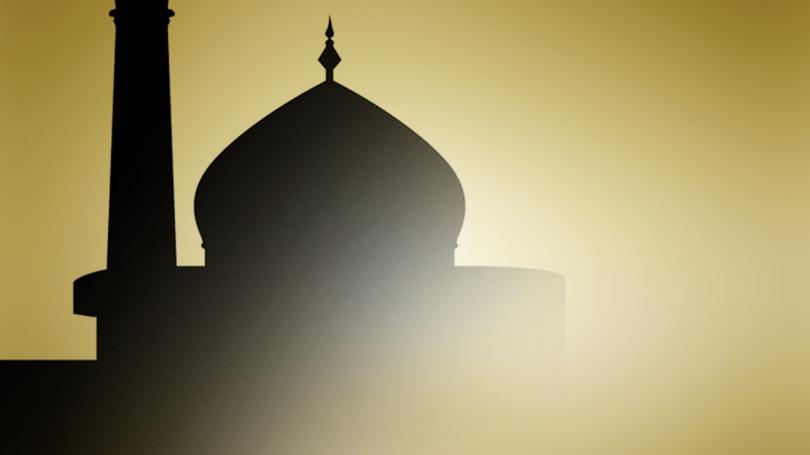The 12 Islamic months, their meaning and significance
Muslims the world over are guided by the Islamic calendar which is also known as the Hijri calendar. The Islamic calendar is a lunar calendar which changes over time and the placement of each month differs from previous years of the Gregorian calendar. Why We Didn’t Declare Hijrah Holiday — Oyo Govt Muharram 1442: The […]

Muslims the world over are guided by the Islamic calendar which is also known as the Hijri calendar.
The Islamic calendar is a lunar calendar which changes over time and the placement of each month differs from previous years of the Gregorian calendar.
Why We Didn’t Declare Hijrah Holiday — Oyo Govt
Muharram 1442: The Moral Hijrah
Every month symbolizes a particular meaning and comes in a systematic way.
The Islamic calendar comprises 12 months and reads 1442 AH (1,442 years after Hijrah).
Muslims use the sighting of the moon, which is why virtually none of the 12 months have exact number of days compared to the Gregorian calendar.
Below are the 12 Islamic months, their meaning and significance.
Muharram
This is the first month on the Islamic calendar; the Islamic New Year, also known as Arabic New Year or Al Hijrii starts on the first day of Muharram.
The Arabic word ‘Muharram’ means ‘forbidden’, this is so because battles and all kinds of fighting were forbidden (ḥarām) during this month. Muḥarram includes ‘Āshūrā’, the tenth day.
Safar
This is the second Islamic month, the Arabic word ‘Safr’ means ‘void’
Supposedly named thus because pre-Islamic Arab houses were empty this time of year while their occupants gathered food.
Another account relates that they used to loot the houses of their enemies after defeating them in battle, leaving nothing behind.
Rabi Al-Awwal
This is the third Islamic month, the Arabic words ‘Rabi-Al Awwal’ mean ‘the first spring’.
The name also means to graze, because cattle were grazed during this month.
Rabi Al-Awwal is a very holy month for many Muslims as the Prophet Mohammed (PBUH) was born in this month.
Rabi Al-Thani
This is the fourth Islamic month. The Arabic words ‘Rabi-Al Thanni’ mean ‘the second spring’. Others refer to the month as Rabi-Al Akhir which means the end of spring time.
Jumada Al-Ula
This is the fifth Islamic month. The Arabic words ‘Jumada Al-Ula’ mean
‘the first of parched land’.
Often considered the pre-Islamic summer, Jumāda may also be related to a verb meaning “to freeze” and another account relates that water would freeze during this time of year.
Jumada Al-Thani
This is the sixth Islamic month and the second month of parched land.
Also reffered to as Jumada Al-Akhir.
Rajab
This is the seventh Islamic month. The Arabic word ‘Rajab’ mean ‘respect/honour’.
This is the second sacred month in which fighting is forbidden.
Rajab may also be related to a verb meaning “to remove”, so called because pre-Islamic Arabs would remove the heads of their spears and refrain from fighting.
Sha’aban
This is the eighth Islamic month; the word ‘Sha’aban’ means ‘scattered’.
This month marked the time of year when Arab tribes dispersed to find water.
Sha‘bān may also be related to a verb meaning “to be in between two things”. Another account relates that it was called thus because the month lies between Rajab and Ramadan.
Ramadan
This is the ninth Islamic month which is the most popular month and which virtually every non-Muslim knows.
The Arabic word ‘Ramadan’ means ‘burning heat’.
Burning is related to fasting as on an empty stomach one’s worldly desire will burn.
Supposedly so called because of high temperatures caused by the excessive heat of the sun, Ramadan is the most venerated month of the Hijri calendar.
During this time, Muslims must fast from pre-dawn till sunset and should give charity to the poor and needy.
Shawwal
This is the tenth Islamic month. The Arabic word ‘Shawwal’ means ‘raised’.
She-camels would normally be in calf at this time of year and raise their tails.
Dhul Qa’dah
This is the eleventh month on the Islamic calendar. The Arabic words ‘Dhul Qa’dah’ means ‘the one of truce/sitting’.
This is a holy month during which war was banned. People were however allowed to defend themselves if attacked.
Dhul Hijjah
This is the twelfth and last month on the Islamic calendar. The Arabic words ‘Dhul Hijjah’ means ‘the one for pilgrimage’.
During this month Muslim pilgrims from all around the world congregate at Mecca to visit the Kaabah.
The Hajj is performed on the eighth, ninth and the tenth of this month.
Day of Arafah takes place on the ninth of the month. Eid al-Adha, the “Festival of Sacrifice”, begins on the tenth day and ends at sunset on the twelfth, and during which war was banned.
